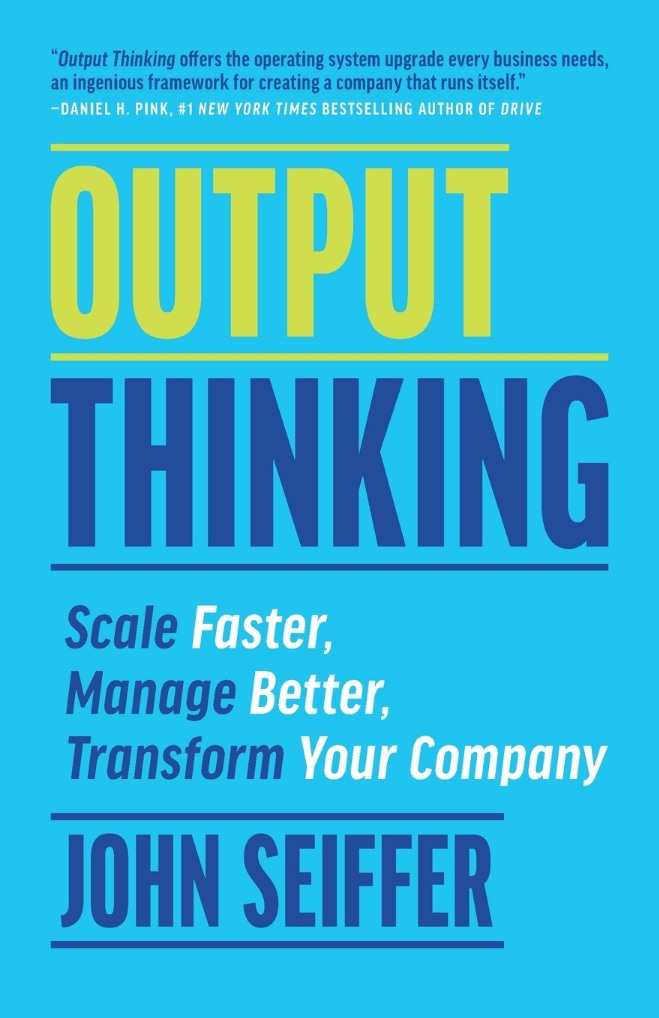I've been working with a few clients recently who are hiring their first assistant. It's hard for some people and I get why. I imagine it's kind of like having a butler or a personal valet always in your space while you're getting showered and dressed. Feels kind of personal. And yet the right assistant, worked with in the right way, can make you a whole lot more productive. Here are my thoughts.
Forget About Job Titles
The reason you hire anyone is not to fill out a job title, but to produce outputs. Unlike most people you hire who have responsibilities for producing their own outputs (a salesperson for example, or a tech) an assistant is someone you hire to help you produce your outputs more efficiently and effectively.
When we use a job title or name a role, we assume certain outputs go along with that label. But titles can be misleading. You want to evaluate someone based on the outputs you need, not their title. Here's what I mean.
VA's & PA's
Let's stop using those titles. VA stands for virtual assistant, meaning they aren't in the same room as you. In many ways that's irrelevant. I get that someone in your room can do things others can't but those outputs should not be associated with the job title.
PA stands for personal assistant, meaning the things they assist with are somehow not business related. There may be legal or tax reasons why the business can't pay somebody to pick up your groceries or schedule the plumber at your house. That's fine. Just have the business pay you more and pay them from your personal account.
AA or EA?
AA stands for administrative assistant and EA for executive assistant. There is a useful distinction here but don't let the titles confuse you. The distinction is in the outputs they produce and how they make you more efficient and effective. A simplified way to think of it is an AA makes you more efficient and an EA makes you more effective. But let's dig deeper.
Someone who does things you ask them to do, especially administrative tasks like calendar management, travel arrangements, and the like is typically called an AA. They react to what you need - either in the moment or on a scheduled basis. They may do data entry, upload new content, onboard new folks. But they are primarily reacting to your instructions.
We typically use the term EA for someone's whose job is to free you up so you can use your superpower most of the time. Yes, they'll handle administrative tasks (or hand them off to their AA). But their real value is knowing how you think, how you want things handled so they can be proactive rather than reactive. Rather than just handling your calendar, an EA knows who you should be meeting with and who you shouldn't. As Chris Munn said, an EA understands what your goals are and works to help you accomplish them [sometimes] despite your actions.
What About the C-word?
Chief of Staff is another job title often confused with titles for assistants. Someone with that title can handle entire projects on your behalf. They are responsible from start to finish to produce the outputs you need from each project. In practice they often interact with people across various departments of your company. They make you more productive by handling assignments you don't have time to deal with. And those assignments are typically projects with a defined end point (output). Other assistants' work is more ongoing.
A Few More Thoughts
Let's not call this grunt work. You want people who excel at stuff you don't. So the result is everyone plays at the top of their game.
Many times your assistant will respond to emails or phone calls on your behalf. They can use your email account but don't make them pretend to be you. They should say something like "I’m [name] answering because [boss] asked me to reach out on her behalf to … And they should let the person know when they should reply to them and when directly to you.
Don't worry about keeping them busy. The goal is to keep you busy with more productive work. If that means they have some slack time so they are always available when you need them, fine. You might give them some evergreen assignment - like researching some industry or learning different software to work on when they're not engaged in something more urgent.
It's All About Output Thinking
Don't be misled by the fact that I use job titles in explaining all this. It's really about the outputs you need somebody to produce and help proactive or reactive you need them to be. Can you have an AA handle a project from start to finish? Sure. Can your Chief of Staff make travel arrangements? Undoubtedly. Just connect the outputs you need to the skills of the person. More about that in my book.
If you found this useful, here's where you can find more.
My book Output Thinking
1-1 Coaching -My schedule is full now (but might not be when you’re reading this). In any case, I always keep some time open so anyone can sign up for a free session.
Follow me on Blue Sky at https://bsky.app/profile/johnseiffer.bsky.social





